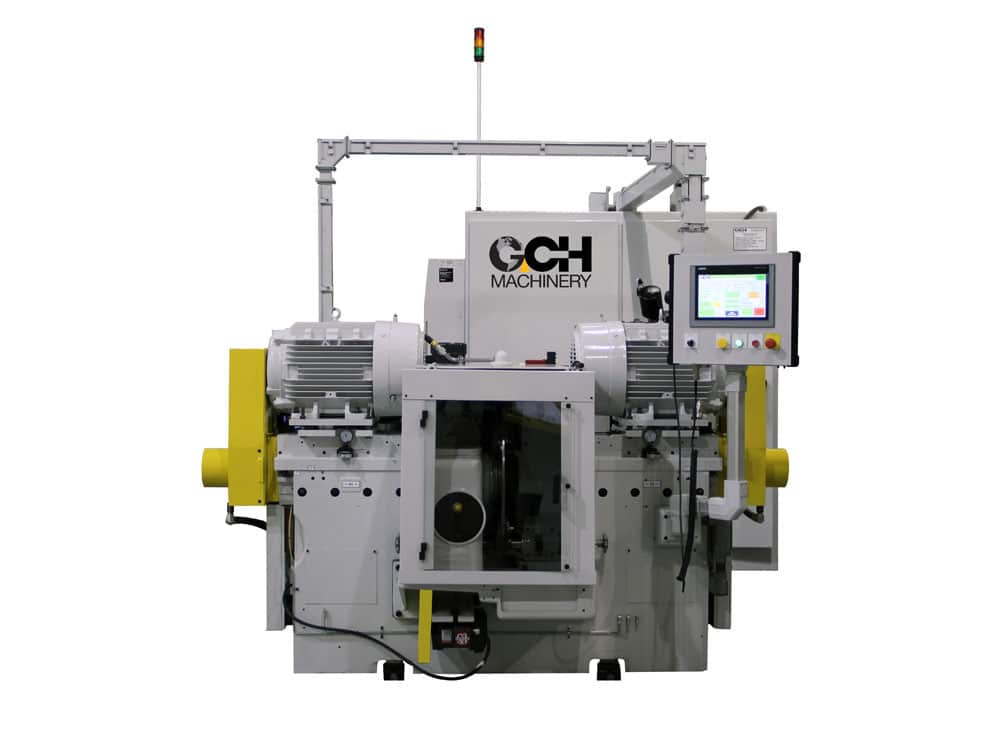

While purchasing new equipment is one option, it often comes with a prohibitive price tag and extensive lead times. This is where hybrid grinder remanufacturing offers a strategic advantage. It combines the robust foundation of your existing grinder with the latest mechanical and electronic technology, creating a machine that meets—and often exceeds—modern standards.
Ignoring the warning signs of a failing grinder can lead to spiraling costs, lost contracts, and a decline in competitiveness. If your machine is showing symptoms of wear, the cost of inaction may already outweigh the investment in a hybrid solution. Here are seven critical signs you need grinder remanufacturing.
1. Frequent Breakdowns & Costly Repairs
Are you constantly sourcing and replacing parts for your grinder? Frequent breakdowns are a clear indicator that wear and tear have compromised the machine’s core systems. While patching issues as they arise may seem like a quick fix, it’s often a symptom of a larger problem. Hybrid grinder remanufacturing addresses this by replacing outdated, unreliable systems with modern, durable components, restoring your machine’s dependability and reducing maintenance costs.2. Declining Grinding Accuracy & Precision
Your grinder’s primary function is to produce parts with exacting precision. When you notice a loss of grinding consistency, such as an inability to hold tolerances, visible chatter marks, or poor surface finishes, it’s a sign that critical components are failing. Misalignment and wear in spindles, slides, or controls can cripple your machine’s accuracy. A strategic grinder retrofitting of these components restores the machine’s precision, ensuring that every part meets OEM specifications.3. Outdated CNC Controls & Software
Legacy CNC controls can significantly limit a grinder’s capabilities, making it difficult to execute complex jobs or integrate with modern digital workflows. If your machine’s software is obsolete or its controls lack the advanced features needed for today’s production demands, a grinder controls upgrade is essential. This modernization effort transforms your legacy grinder into a powerful asset fully equipped for the digital era.4. Rising Operating Costs & Energy Consumption
Older grinders often rely on inefficient hydraulic systems, motors, and cooling units that drive up energy consumption and operating costs. Leaky hydraulics not only create safety hazards but also lead to the unnecessary expense of purchasing and disposing of costly machine oils. One of the key benefits of hybrid grinder rebuilding is the integration of energy-efficient components, such as replacing hydraulic systems with precise electric motors, to lower your operational expenses.5. Limited Availability of Replacement Parts
One of the biggest challenges with legacy grinders is parts obsolescence. When replacement parts are scarce or no longer in production, even a minor breakdown can lead to extended and costly downtime. Hybrid grinder remanufacturing solves this problem by updating older systems with modern, readily available components, simplifying future maintenance and ensuring your machine remains operational for years to come.6. Inability to Handle New Materials or Complex Jobs
The manufacturing landscape is constantly evolving, with growing demand for parts made from tougher alloys and featuring complex geometries. If your current grinder struggles to meet these advanced machining requirements, it limits your ability to take on new projects and stay competitive. Centerless grinder upgrades and other grinding machine retrofitting solutions can enhance your machine’s power, rigidity, and control, enabling it to adapt to new challenges with ease.7. Excessive Downtime Affecting Productivity
Every minute your grinder is offline, your productivity and profitability suffer. Unplanned downtime can disrupt production schedules, delay shipments, and damage your company’s reputation. If you find your team constantly waiting for repairs, it’s a clear sign that your machine’s reliability is compromised. A remanufactured grinder restores uptime, allowing you to meet production targets without the high capital expenditure of a new machine.Why Hybrid Grinder Remanufacturing Is the Smart Choice
Choosing hybrid grinder remanufacturing is a strategic decision that offers significant returns. It extends the life of your valuable assets, delivers performance comparable to new equipment, and provides substantial cost savings. By partnering with expert grinder remanufacturing services, you can transform your aging machinery into a cornerstone of modern production.GCH Machinery’s experts have the experience to assess your grinder’s condition and develop customized upgrade and retrofitting solutions to meet your specific goals.
Talk to our team today to learn how a custom grinder upgrade can keep your operations competitive
*Required fields
*Required fields
*Required fields
*Required fields
*Required fields
*Required fields
*Required fields
*Required fields
